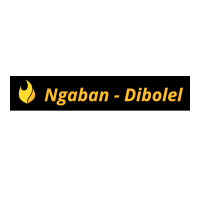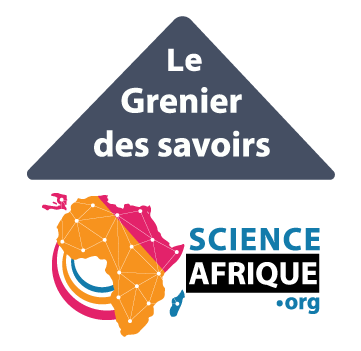À propos de la revue / About the journal

Ngaban-Dibolel. Revue africaine de la responsabilité sociale et du management durable se donne pour champ de lecture et d’analyse les actions pensées pour améliorer les différents domaines socioprofessionnels, les décisions prises par les acteurs et actrices politiques pour engager les citoyen-ne-s à construire le mieux-être, la gestion efficiente du bien commun au niveau familial, social, entrepreneurial et (inter)continental, les mécanismes sociaux, juridiques, politiques et économiques qui participent à (dé)construire l’idéal d’un village planétaire, etc.
La responsabilité et le management sont des notions anciennes qui ont façonné le monde. En combinant les mots ngaban (responsabilité en langue duala) et dibolel (service en langue balong), il a été question, avec cette revue, d’ouvrir symboliquement un espace de dialogue où les diverses sensibilités scientifiques pourront exprimer leur entendement de l’obligation sociale, mais également partager leur perception de la pérennité dans des champs aussi variés que les ressources naturelles et humaines, le vivre-ensemble, la coopération économique, le développement communautaire, l’intégration des savoirs locaux, etc.
Le principal objectif de Ngaban-Dibolel, ouverte aux sciences humaines et sociales, est d’appréhender le constat selon lequel l’humanité est condamnée à collaborer. Devrait-on nécessairement essayer de modifier la vision du monde de l’autre que l’on perçoit tantôt comme l’envahisseur, tantôt comme le partenaire hypocrite, tantôt comme un être incapable de créer de la richesse? Dans un monde où les défis sécuritaires, alimentaires et écologiques sont grandissants, comment participer à l’épanouissement de l’alter ego sans que celui-ci ne songe jamais à rompre la collaboration, à se retourner contre l’inséparable compagnon de route?
Quel que soit le niveau de responsabilité, les enjeux du management durable se posent entre autres sous fond de concrétisation d’un destin commun et du souci de préservation des valeurs par lesquels l’humain et les peuples s’autodéterminent. L’implémentation du principe d’intégration devient donc une urgence et la réflexion scientifique doit s’en saisir. La revue Ngaban-Dibolel se veut alors la plateforme qui rassemblera les contributions théoriques et pragmatiques sur la gestion sociale responsable, l’analyse des programmes et plans d’action censés modifier les politiques publiques.
Les approches interdisciplinaires seront privilégiées. Les auteurs et les autrices sont donc encouragé-e-s à présenter les résultats de travaux visant à promouvoir les mécanismes de management durable et responsable susceptibles de profiter à une entité particulière ou à la société dans son ensemble. On pourra espérer que leur réinvestissement accompagnera la création d’emplois, l’augmentation de la richesse locale, la gestion rationnelle des ressources (temporelles, financières, humaines, spatiales, infra-structurelles) par l’usage des technologies et procédés socialement inclusifs et respectueux de l’environnement, etc.
Les textes proposés à la revue doivent être soumis par le biais du formulaire du Grenier des savoirs, que ce soit à la suite d’un appel à contributions pour un dossier thématique ou d’un appel permanent/varia. Pour les normes de présentation, les autrices et auteurs se référeront aux instructions qu’ils et elles devront respecter scrupuleusement. Différents types de textes sont acceptés. Les personnes aspirant à publier dans la revue sont invitées à lire attentivement l’engagement des auteurs et des autrices et les autres politiques de la revue qui aspire à la plus haute qualité et à l’indexation dans le Directory of Open Access journals.
Pour toute question, écrire à la rédactrice en chef victorineghislaine.nzinomunong@gmail.com
English version
Ngaban-Dibolel. African Journal of Social Responsibility and Sustainable Management aims to read and analyse actions designed to improve the various socio-professional fields, decisions taken by political actors to engage citizens in building well-being, efficient management of the common good at the family, social, entrepreneurial and (inter)continental level, social, legal, political and economic mechanisms that contribute to (de)building the ideal of a global village, etc.
Responsibility and management are ancient notions that have shaped the world. By combining Ngaban (responsibility in the duala language) and Dibolel (service in the Balong language), this review was intended to symbolically open a space for dialogue where the various scientific sensibilities can express their understanding of social obligation, but also share their perception of sustainability in fields as varied as natural and human resources, living together, economic cooperation, community development, integration of local knowledge, etc.
The main objective of Ngaban-Dibolel, open to the human and social sciences, is to understand the observation that humanity is condemned to collaborate. Should we necessarily try to change the world view of the other person who is sometimes perceived as the invader, sometimes as the hypocritical partner, sometimes as a being unable to create wealth? In a world where security, food and ecological challenges are growing, how can we participate in the development of the alter ego without the latter ever thinking of breaking off collaboration, of turning against the inseparable companion on the road?
Whatever the level of responsibility, the challenges of sustainable management arise, among other things, against the backdrop of the realization of a common destiny and the concern to preserve the values by which humans and peoples determine themselves. The implementation of the principle of integration is therefore becoming an urgent matter and scientific reflection must address it. The Ngaban-Dibolel review is then intended to be the platform that will bring together theoretical and pragmatic contributions on responsible social management, the analysis of programmes and action plans intended to change public policies.
Interdisciplinary approaches will be favoured. Authors are therefore encouraged to present the results of work aimed at promoting sustainable and responsible management mechanisms that can benefit a particular entity or society as a whole. It is to be hoped that their reinvestment will be accompanied by job creation, increased local wealth, rational management of resources (temporal, financial, human, human, spatial, infrastructural) through the use of socially inclusive and environmentally friendly technologies and processes, etc.
Texts proposed for review must be submitted using the Grenier des savoirs form, whether following a call for contributions for a thematic dossier or a permanent/varia call. For the presentation standards, the authors will refer to the instructions they must scrupulously respect. Different types of texts are accepted. Authors are encouraged to carefully read the authors’ commitment and other policies of the journal that aspires to the highest quality and indexing in the Directory of Open Access journals.
If you have any questions, please contact the editor at victorineghislaine.nzinomunong@gmail.com
